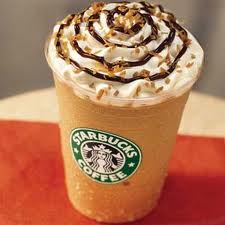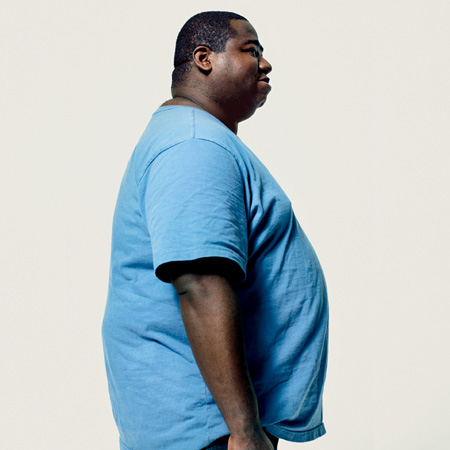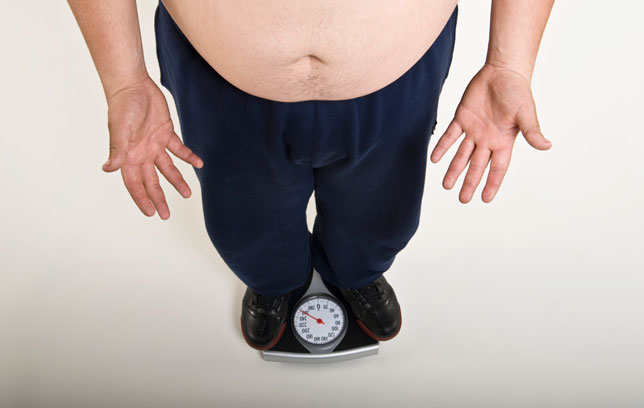Counting Calories for Weight Loss
OVERVIEW
BALANCE IS GOOD FOR BUDGETS, RELATIONSHIPS, AND ACROBATS.
If you're seeking to lose weight, though, it's your enemy. You need an energy imbalance, and you achieve that by expending more calories than you take in. That means eating fewer calories, exercising to fry more calories, or both. The formula sounds simple, but it's devilishly difficult to pull off.
Normally, your calorie burn is a function of your weight: The more of you there is, the more fuel you use to perform a motion, whether it's swinging a kettlebell or salivating over Megan Fox. But the moment you cut calories, your body rebels, downshifting your burn through a phenomenon scientists call adaptive thermogenesis. "Your metabolism slows when you diet, even after accounting for lost weight," says Kevin Hall, Ph.D., a researcher at the National Institute of Diabetes and Digestive and Kidney Diseases. "In times of food deprivation, this helps you survive longer." In today's times of plenty, you end up with a larger waist instead of a longer life. To hit this moving target and manage your calorie deficit, you need to recalculate regularly. We've run the numbers to help make the metabolic math work in your favor. (And for an easy diet plan that will help you lose up to 15 pounds in 6 weeks, pick up a copy of The Men's Health Diet today!)
Figure Out Your Baseline
Estimating the daily number of calories required to keep you going is difficult even in a lab, says Hall. That's because it's hard to measure and it changes. Popular formulas, such as your weight multiplied by 10 (plus the number of days a week you work out) can miscalculate your calorie needs by at least 10 percent.
THE COST: To show how small math errors can carry a heavy price, we've cast you as this guy: You're 35 years old, weigh 205 (5 pounds heavier than the national mean), and want to drop 20 pounds in 20 weeks. A 10 percent inaccuracy would mean you'd need more than twice the time to hit 185 pounds.
THE FIX: Hall's team created a sophisticated online simulator (bwsimulator.niddk.nih.gov) that factors in age, daily activity level, and exercise habits. Plugging in your stats tells us that if you have a desk job and work out once a week, your baseline is 3,048 calories a day. Now comes the hard part—cutting calories.
Set Science-Based Goals
Ever hear that a daily deficit of 500 calories would allow you to lose a pound a week? That's based on wobbly 50-year-old science. It presumes you'll lose 100 percent of your weight from fat and doesn't account for your slowing metabolism, says Hall.
THE COST: You might give up if this were the basis for your goal, because you would need 2 months longer to hit your target.
THE FIX: The simulator reveals that to lose 20 pounds in 20 weeks without additional exercise actually requires a daily deficit of 656 calories, which means a daily budget of 2,392 calories. When you hit your target of 185 pounds, you need to recalculate your baseline: Your new daily max for weight maintenance is now 2,835 calories. Other research by Hall suggests that if you're patient, you can lose 10 pounds painlessly. A 100-calorie-a-day deficit can do the trick. Half the weight will come off in a year, and 95 percent in 3 years.
Be Honest About Your Intake
Even people who log every morsel bungle the math. In a study by the Pennington Biomedical Research Center, dieters who were taught how to count calories still missed 18 percent of them. That's partly because restaurant menus and food labels can underestimate calorie counts by as much as 245 percent, according to research in the Journal of the American Dietetic Association.
THE COST: If you lowballed your intake by 430 calories a day, you would lose 4 fewer pounds in a month.
THE FIX: Log smarter. Instead of counting calories, give yourself a grade from 1 to 10 for your eating habits and weigh yourself (at the same time) each day, says Alan Aragon, M.S., MH's weight-loss advisor. You can give yourself one average score or record scores at, say, 11 a.m., 5 p.m, and 10 p.m. The soft spots in your diet will become obvious, and because the scale doesn't play favorites, you'll see if you're maintaining a deficit or not.
Gauge Your Burn Better
The treadmill trumpets that you just zapped 800 calories. But don't celebrate with that 700-calorie recovery shake just yet, says Scott Sehnert, M.S., R.D., a sports dietitian at Auburn University. Certain cardio machine readouts can be inaccurate—by as much as 2.9 calories per minute, according to a Naval Health Research Center report. (Incinerate extra weight with the 28-Day Fat Torch.)
THE COST: If you overestimated your burn by 125 calories a day, you would need an extra 6 weeks to reach your goal.
THE FIX: Use those calorie counts from a machine (or a tracker like the Nike+ FuelBand) to estimate how intensely you're exercising, says Brian Zehetner, M.S., C.S.C.S., the chief science officer for Anytime Fitness. Then ignite your own adaptive thermogenesis with high-intensity intervals or circuits. You'll burn more calories in less time and can boost your after-burn—the increase in resting metabolism that Italian research shows can last for up to 22 hours.
Factor In Enough Sleep
Insufficient sleep frazzles your hormones, says Leslie Bonci, R.D., M.P.H., director of sports nutrition at the University of Pittsburgh Medical Center. "It stimulates hunger-inducing ghrelin and suppresses appetite-inhibiting leptin." Sleep-deprived folks eat about 300 extra calories a day, reports the New York Obesity Research Center.
THE COST: Those 300 calories result in 1.3 fewer pounds lost in week one!
THE FIX: Switch off bright lights and backlit electronics several hours before bed, says W. Christopher Winter, M.D., MH's sleep medicine advisor. They interfere with production of sleep-inducing melatonin. In a study in Applied Ergonomics, people who used tablets for 2 hours before bed showed significant melatonin suppression. Slept poorly? Sip green tea with your a.m. oatmeal. A study in the journal Appetite suggests that doing so curbs hunger and helps you eat less at your next meals. Win-win!
-
7 Tips From Belly Off! Users:
Chinups are hard.
-
Athlete Weight-Loss Plan:
Most professional athletes are blessed with great genetics—and then th
-
How Clearing Your Plate Makes You Gain Weight
Remember when your mom used to tell you to clean your plate at dinner
-
Diet Str egies: Weight Loss Success Stories
Name Stephen Furst Job Actor/director Hometown Los Angeles Age 48 H
-
Weight Loss and Diet Soda
Did you see the headlines? New study says diet cola helps you slim dow
-
Best Weight Loss Advice
You see them all the time—infomercials, emails, and Facebook posts tha
- DON'T MISS
- How Taking a Cheat Day Can Help You Lose Weight
- Belly-Filling Foods
- Transformation: Workaholics Workout Plan
- I Hate Fat People:
- Smoothie King Almost Duped Me!
- STUDY: The Lifting Method That Sky-Rockets Your Metabolism
- Baseball Food - More than Hot Dogs and Beer
- Weight Loss: Abs Diet Plan Summary
- Abs Diet: Fight Food Cravings
- Abs Diet- Vertical Leap Leg Exercises




